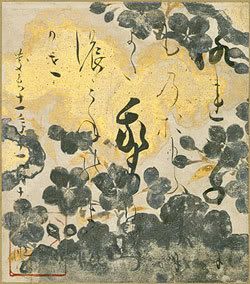Etienne- "I was not even thinking of the philosophical scope of Boethius' work but of the literary one, since this list was obviously not a philosophical one, however, even on the philosophical level I would think twice before placing Aquinas over Boethius, considering that his influence of his work goes on up to the 12th century as a central part of European philosophy. The Consolation of Philosophy has often been considered the single most important work of European Literature."
Obviously this is debatable. Looking on the list of the 100 Most Influential Books Ever Written from the book of the same title by Martin Seymour-Smith one finds Boethius again slighted, while there are numerous other books that are also excluded from Bloom's "canon": Elements- Euclid, Allegorical Expositions of the Holy Laws-Philo of Alexandria,
Annals, from the Death of the Divine Augustus-Cornelius Tacitus,
Meditations-Marcus Aurelius, Outlines of Pyrrhonism-Sextus Empiricus, Guide for the Perplexed-Moses Maimonides, The Kabbalah, Summa Theologicae-Thomas Aquinas, On the Babylonian Captivity of the Church-Martin Luther, Institutes of the Christian Religion-John Calvin, On the Revolution of the Celestial Orbs- Nicolaus Copernicus, The Harmony of the World- Johannes Kepler, Novum Organum- Francis Bacon, Works-Gottfried Wilhelm Leibniz, Ethics- Baruch de Spinoza, Mathematical Principles of Natural Philosophy-Isaac Newton, The Encyclopedia- Denis Diderot, ed., A Dictionary of the English Language- Samuel Johnson, etc...
Bloom admits that his criteria is essentially aesthetic and that he has left of many important books of philosophical, scientific, and historical interest that are not, in his opinion, of great aesthetic merit. he also admits that he has excluded many Greek and Latin texts of real merit as they are probably outside of the reading scope of all but specialists. As JBI and I have suggested before Bloom has simply provided a list (in a mere appendix that was part of a larger work of essays upon major "canonical" writers) that provides what may be the most complete canon of Western literature for the English-language audience. Undoubtedly the list has its flaws. There are books that I think are glaring omissions and others whose inclusion I question. Undoubtedly it is also Anglo-centric... but no less so than a similar list compiled by a University department in France or Germany would favor French or German-language literature. It is also, as I have noted before, out of necessity. The truly interested reader can easily... even through the use of the internet... scope out a far more in-depth list of French, German, Spanish, or Italian literature... but to what avail? Without a mastery of these languages it is next to impossible to experience writers such as Sully Prudhomme, Alfred Victor de Vigny, Leconte de Lisle, José María de Heredia, Villiers de l'Isle-Adam, Rosalía de Castro, José de Espronceda, Diego Hurtado de Mendoza, Íñigo López de Mendoza, etc... Undoubtedly many of these writers are equal to such English-language figures as Thomas Wyatt, Sir Walter Raleigh, Andrew Marvell, etc... but without an access to the language only the most central canonical figures can be experienced: Baudelaire, Rimbaud, Hugo, Cervantes, Lorca, Machado, San Juan de la Cruz, etc... Hell... it hasn't been until just recently that there has even been a decent translation available of a figure as central to Spanish literature as Gongora. Anyway... why are we once again disputing what is and is not part of the Western Canon in a thread directed specifically at the Eastern Canon? I guess it proves my initial supposition that we are all quite ethnocentric as illustrated by our ignorance of an entire universe outside of our own.




 Reply With Quote
Reply With Quote It seems to have earned solid reviews... and I have been quite pleased with other Mitchell translations.
It seems to have earned solid reviews... and I have been quite pleased with other Mitchell translations.





 thanks!
thanks!

